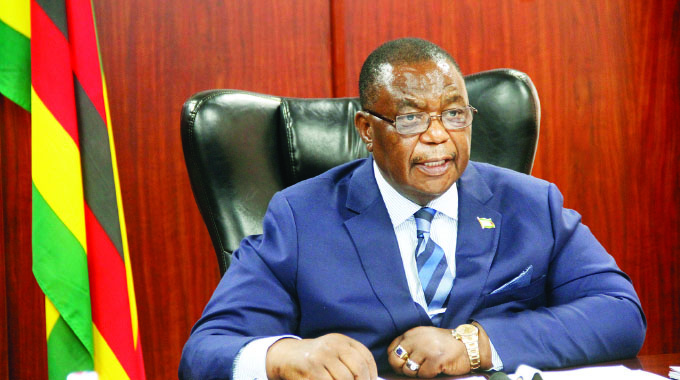Health Bill heads for Senate

Zvamaida Murwira Senior Reporter
The Health Services Amendment Bill, which seeks to outlaw industrial action by health workers lasting more than three days is now headed for Senate after it sailed through the National Assembly last week with some amendments.
The Bill also proposes to change the name of the Health Services Board to the Health Services Commission, a development that is expected to enhance the esteem in which the Board and its members are held and giving the health sector obvious equality with the general Civil Service Commission and the Judicial Service Commission.
Clause Five of the Bill said health services shall be deemed an essential service as referred to in the Constitution.
“No collective job action whether lawful or unlawful shall continue for an uninterrupted period of 72 hours or for more than 72 hours in any given 14-day period, and notice of any collective job action must be given in writing 48 hours prior to the commencement of such collective job action,” reads the Clause
During debate in the National Assembly, Vice President Constantino Chiwenga who is also Minister of Health and Child Care, said Government had mobilised US$4 million worth of equipment to build the capacity of hospitals around the country as part of efforts to improve conditions of service for the health workers.
He said conditions of service for civil servants that include health workers was complex as it did not include salaries alone but other factors such as tools of trade which Government was seized with.
Debate on the Bill was characterised with sporadic flaring of tempers as legislators were divided on a Clause that seeks to include health workers into the category of providers of essential services that could not go on industrial action. Legislators particularly from the opposition Citizen Coalition for Change had argued that it was a Constitutional right for workers to go on strike given the unattractive salaries.
But VP Chiwenga said Government was dealing with the issue of conditions of service holistically.
“Now, the issues which are being raised by Hon. Members are administrative issues which are affecting the entire country and this is what we are addressing. It is not only about salaries. Salaries come at the tail end but we are talking about their accommodation, transport, tools of trade, the equipment which they use in hospitals and this is what we are doing,” said VP Chiwenga.
“As I speak now, we have already done – in terms of the equipment, a shopping list which is more than US$4 million to equip our hospitals to make sure that whoever goes to the hospital receives attention and services and given, in particular a citizen of our country, the life which God decreed, that the individual must be on this mother planet either for 60 years, 70 years or for 100 years. We must try and achieve that.”
VP Chiwenga said while the Constitution provides a right to participate in collective job action, the same law guarantees right to life.
“Nowhere in the Constitution is written that any person can withdraw somebody’s life because you have got a grievance to settle with whoever, be it an employer, somebody else and you say you must die because I have got a bone to chew with my employer,” he said.
Full story on: www.herald.co.zw
VP Chiwenga said people who had no problem with allowing health workers to go on strike were the same people who would take the Government to court for negligence if they were to lose a relative during labour unrest.
However legislators from the opposition insisted that it was wrong to stop health workers from striking given low salaries they were getting.
But Justice, Legal and Parliamentary Affairs Minister, Ziyambi Ziyambi weighed in saying the Bill was also outlawing an industrial action going beyond 72 hours.
“If you go to Clause 5 (2), it explains the restrictions that are there. Firstly in (a), it says the health services is now deemed an essential service consistent with section 65 which indicates that a law may designate any other as an essential service. It then says no collective job action, whether lawful or unlawful shall continue for an uninterrupted period of 72 hours or for more than 72 hours in any 14 day period. So what this provision is doing is, it is restricting the time line which the health services can go on strike,” said Minister Ziyambi.
He said the Bill also criminalised trade union members who incite people to go on strike.








Comments